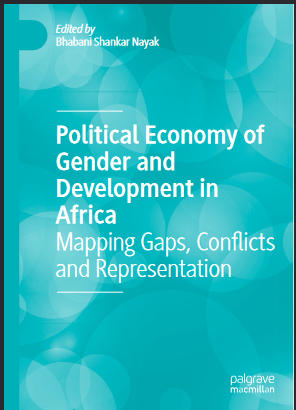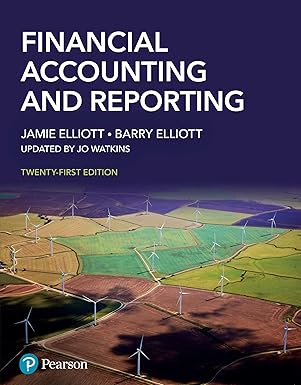xix This volume on ‘Political Economy of Gender and Development in Africa; Mapping Gaps, Conflicts and Representation’ is driven by issues rather than abstract theories on gender and development. The book offers clear dis- cussions of central issues of conflict, representation, accessibility and avail- ability of resources to materialise gender justice and ensure rights of women in different spheres of private and public lives. The book helps us to think and understand different issues and challenges of gender and development in Africa. The aim of this book is to focus on threads connecting with the present needs of women to a possible future emancipation of women from the institutions, structures and processes that perpetuate poverty and accelerate different forms of uneven development. The ideals and practices of both gendered development and patriarchal policy processes as con- tested domains, where capitalism, patriarchy, class, race and other state power structures are undermining women’s empowerment within existing political, economic, social, cultural and religious systems. Common sense and stereotypes on gender and development in Africa are dominant ideologies that underpin different theories of development of African women. The book questions such narratives. It is a critique of political economy of gender and development in Africa and re-imagining the existing theoretical outlooks from an issue-based perspective moving beyond essentialist and functionalist narratives. It intends to move within the terrain of dialectical approach of overcoming different theoretical dominance over ‘gender and development’ within bourgeois thought and transforming them at the same time. The issues outlined in this book are interconnected to understand and articulate a radical and pluriversal introduCtion: PoLitiCAL eConomy of gender And deveLoPment in AfriCA xx INTRoDUCTIoN: PoLITICAL ECoNoMY oF GENDER AND DEVELoPMENT... agenda of transforming ‘women’s empowerment to women’s emancipa- tion’. It is within this spirit; the book makes significant interventions in different theoretical debates on gender and development within the African context. African women need African consciousness, ideas, ideologies, struc- tures and agencies for the creative destruction of patriarchy and capitalism in Africa. However, the book rejects the categorisation of ‘gender’ and ‘politics of women’ as identities that subconsciously, prevent greater social and political solidarity for emancipatory struggles. Marginalisation within capitalism and patriarchy is a process which established its legal, political, cultural, religious and economic institutions to ensure unequal ownership, access and right to resources for an egalitarian and dignified life as women. Such gender-based structural barriers are not confined to Africa, it is an universal story of proletarianisation and marginalisation of women within the processes of development. The different forms of marginalisation of women within different processes of development continue to create material circumstances that are common to women across the world. Therefore, organic solidarity among women transcends territorial bound- aries of Africa. The issues of livelihood, property rights, food security, rep- resentation, accessibility to resources, environment and development empowerment are not only the issues of African women. These are issues of all women in the world. In the context of Africa, patriarchy, racial and colonial capitalism have not only reinforced gender inequalities but also accelerated uneven devel- opment where women were alienated from the processes of development. Such a disempowering process has weakened the citizenship rights of women in Africa. Therefore, it is important to locate issues and their inter- connectedness in totality to see through the racial and patriarchal capitalist social, political, economic and cultural relations established by European colonialism and its modernisation project and development processes operating in Africa with different institutional mechanisms. Linda Etale and Mulala Simatele’s chapter argues for wom
چکیده فارسی
xix این جلد در مورد "اقتصاد سیاسی جنسیت و توسعه در آفریقا. ترسیم شکافها، تعارضها و بازنمایی» بهجای نظریههای انتزاعی در مورد جنسیت و توسعه، ناشی از مسائل است. این کتاب بحثهای روشنی را در مورد مسائل اصلی درگیری، نمایندگی، دسترسی و در دسترس بودن منابع برای تحقق عدالت جنسیتی و تضمین حقوق زنان در حوزههای مختلف زندگی خصوصی و عمومی ارائه میکند. این کتاب به ما کمک می کند تا به مسائل و چالش های مختلف جنسیت و توسعه در آفریقا فکر و درک کنیم. هدف این کتاب تمرکز بر رشتههای مرتبط با نیازهای کنونی زنان برای رهایی احتمالی آینده زنان از نهادها، ساختارها و فرآیندهایی است که فقر را تداوم میبخشد و اشکال مختلف توسعه نابرابر را تسریع میبخشد. آرمانها و شیوههای توسعه جنسیتی و فرآیندهای سیاست مردسالاری به عنوان حوزههای مورد بحث، جایی که سرمایهداری، مردسالاری، طبقات، نژاد و دیگر ساختارهای قدرت دولتی قدرت زنان را در سیستمهای سیاسی، اقتصادی، اجتماعی، فرهنگی و مذهبی موجود تضعیف میکنند. عقل سلیم و کلیشه ها در مورد جنسیت و توسعه در آفریقا ایدئولوژی های غالبی هستند که زیربنای نظریه های مختلف توسعه زنان آفریقایی هستند. کتاب چنین روایت هایی را زیر سوال می برد. این نقدی است بر اقتصاد سیاسی جنسیت و توسعه در آفریقا و تجسم مجدد دیدگاههای نظری موجود از منظر موضوع محور که فراتر از روایتهای ذاتگرا و کارکردگرا است. قصد دارد در محدوده رویکرد دیالکتیکی غلبه بر سلطه نظری متفاوت بر «جنسیت و توسعه» در اندیشه بورژوایی حرکت کند و همزمان آنها را دگرگون کند. موضوعات مطرح شده در این کتاب برای درک و بیان یک مقدمه رادیکال و چندگانه به هم مرتبط هستند: اقتصاد سیاسی جنسیت و توسعه در آفریقا xx مقدمه: اقتصاد سیاسی جنسیت و توسعه... دستور کار تبدیل زنان به توانمندسازی الکترونیکی . در این روحیه است. این کتاب مداخلات قابل توجهی در بحث های نظری مختلف در مورد جنسیت و توسعه در زمینه آفریقا انجام می دهد. زنان آفریقایی برای نابودی خلاقانه مردسالاری و سرمایه داری در آفریقا به آگاهی، ایده ها، ایدئولوژی ها، ساختارها و سازمان های آفریقایی نیاز دارند. با این حال، کتاب طبقهبندی «جنسیت» و «سیاست زنان» را به عنوان هویتهایی که ناخودآگاه مانع همبستگی اجتماعی و سیاسی بیشتر برای مبارزات رهاییبخش میشوند، رد میکند. به حاشیه راندن در سرمایه داری و مردسالاری فرآیندی است که نهادهای قانونی، سیاسی، فرهنگی، مذهبی و اقتصادی خود را برای تضمین مالکیت نابرابر، دسترسی و حق به منابع برای یک زندگی برابری طلبانه و شرافتمندانه به عنوان زنان ایجاد کرد. چنین موانع ساختاری مبتنی بر جنسیت به آفریقا محدود نمی شود، بلکه داستانی جهانی از پرولتاریایی شدن و به حاشیه راندن زنان در فرآیندهای توسعه است. اشکال مختلف به حاشیه راندن زنان در فرآیندهای مختلف توسعه همچنان شرایط مادی را ایجاد می کند که برای زنان در سراسر جهان مشترک است. بنابراین، همبستگی ارگانیک میان زنان از مرزهای سرزمینی آفریقا فراتر می رود. مسائل معیشتی، حقوق مالکیت، امنیت غذایی، نمایندگی، دسترسی به منابع، محیط زیست و توانمندسازی توسعه تنها مسائل زنان آفریقایی نیست. اینها مسائل همه زنان دنیاست. در زمینه آفریقا، پدرسالاری، سرمایه داری نژادی و استعماری نه تنها نابرابری های جنسیتی را تقویت کرده است، بلکه به توسعه نابرابر که در آن زنان از فرآیندهای توسعه بیگانه شده بودند، سرعت بخشیده است. چنین روند سلب قدرت، حقوق شهروندی زنان در آفریقا را تضعیف کرده است. بنابراین، مکان یابی موضوعات و پیوند آنها در کلیت برای مشاهده روابط اجتماعی، سیاسی، اقتصادی و فرهنگی سرمایه داری نژادی و مردسالار که توسط استعمار اروپا و پروژه مدرن سازی آن و فرآیندهای توسعه ای که در آفریقا با مکانیسم های نهادی مختلف عمل می کنند، بسیار مهم است. فصل لیندا اتاله و مولالا سیماتله برای زن بحث می کند
ادامه ...
بستن ...
ISBN 978-3-031-18828-2 ISBN 978-3-031-18829-9 (eBook)
https://doi.org/10.1007/978-3-031-18829-9
© The Editor(s) (if applicable) and The Author(s), under exclusive licence to Springer
Nature Switzerland AG 2023
This work is subject to copyright. All rights are solely and exclusively licensed by the
Publisher, whether the whole or part of the material is concerned, specifically the rights of
translation, reprinting, reuse of illustrations, recitation, broadcasting, reproduction on
microfilms or in any other physical way, and transmission or information storage and retrieval,
electronic adaptation, computer software, or by similar or dissimilar methodology now
known or hereafter developed.
The use of general descriptive names, registered names, trademarks, service marks, etc. in this
publication does not imply, even in the absence of a specific statement, that such names are
exempt from the relevant protective laws and regulations and therefore free for general use.
The publisher, the authors and the editors are safe to assume that the advice and information
in this book are believed to be true and accurate at the date of publication. Neither the
publisher nor the authors or the editors give a warranty, expressed or implied, with respect to
the material contained herein or for any errors or omissions that may have been made. The
publisher remains neutral with regard to jurisdictional claims in published maps and
institutional affiliations.
This Palgrave Macmillan imprint is published by the registered company Springer Nature
Switzerland AG.
The registered company address is: Gewerbestrasse 11, 6330 Cham, Switzerland
ادامه ...
بستن ...










